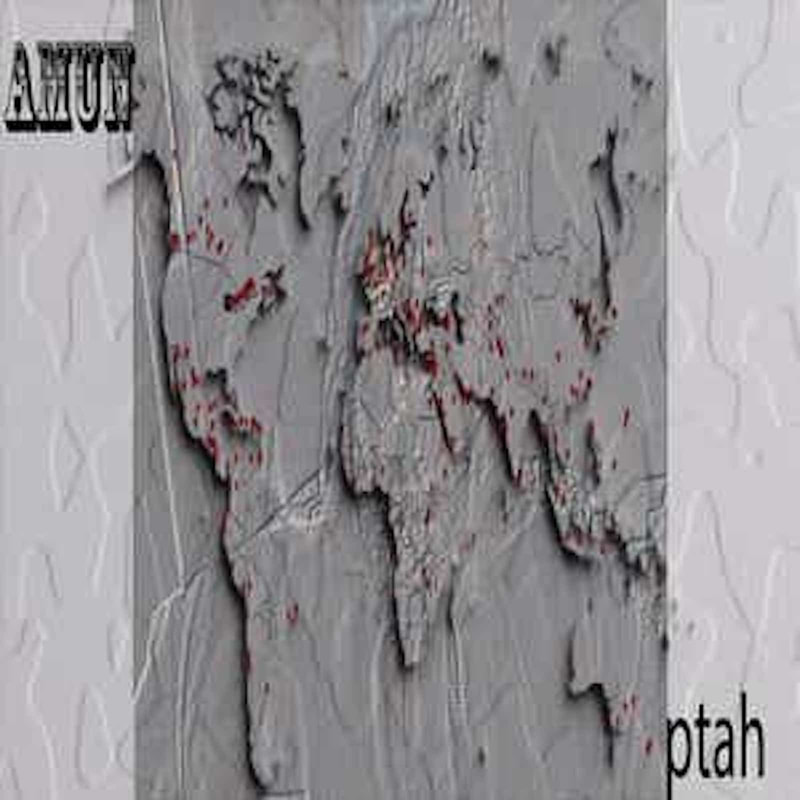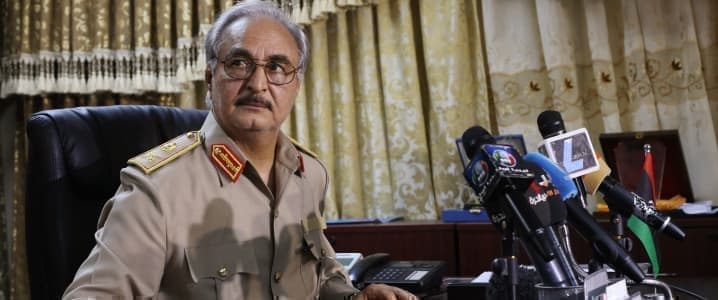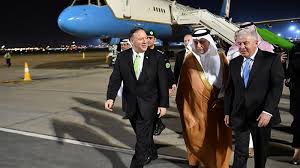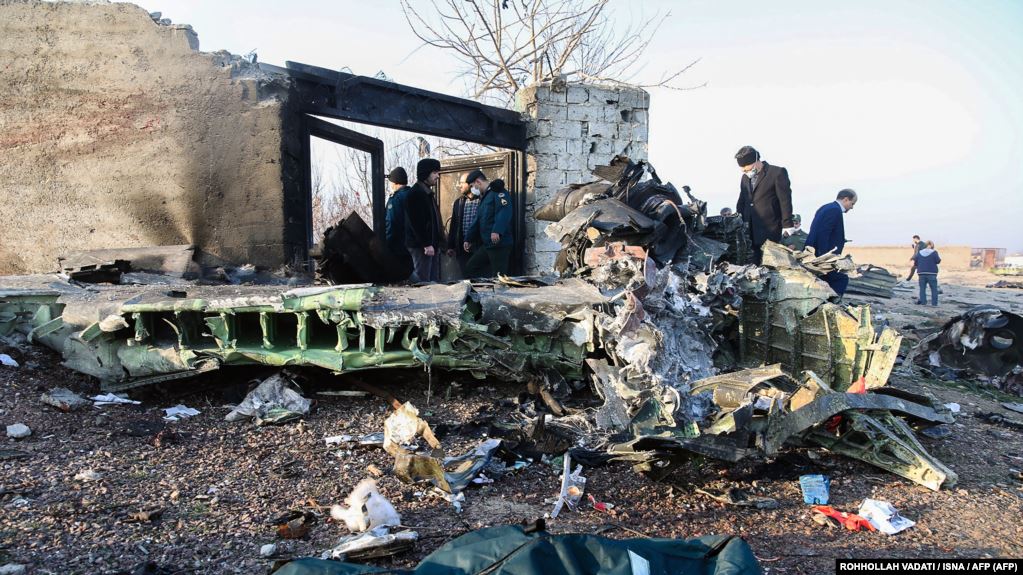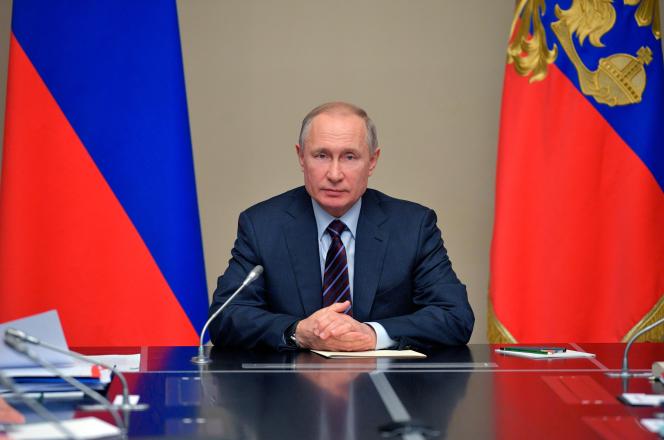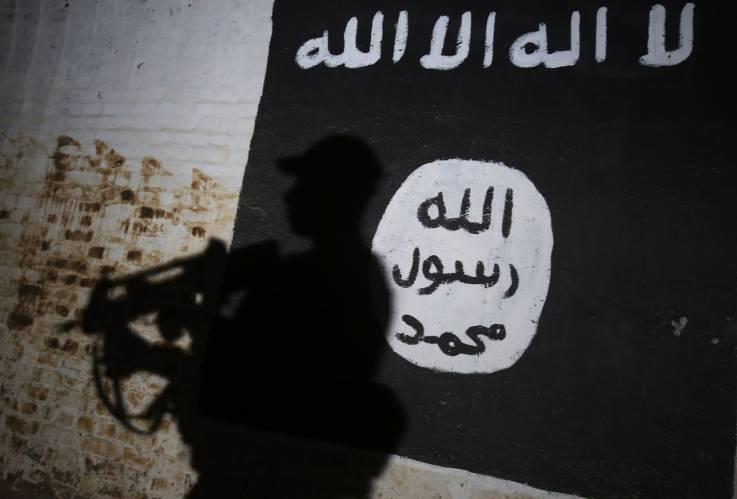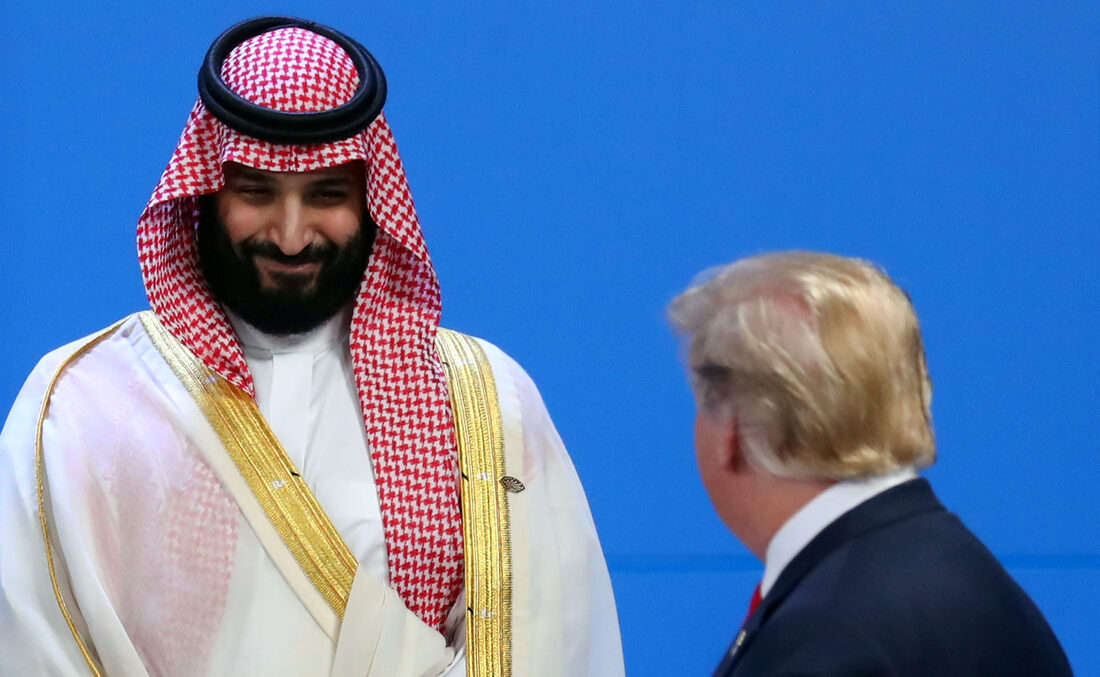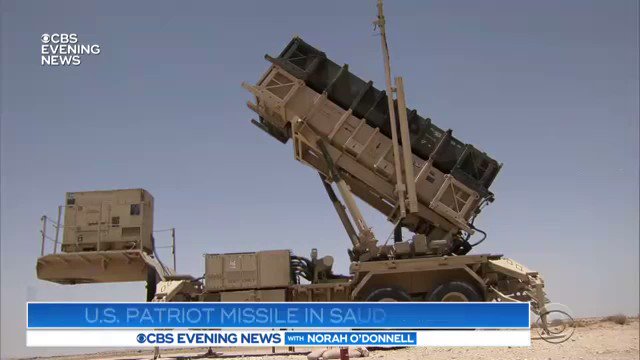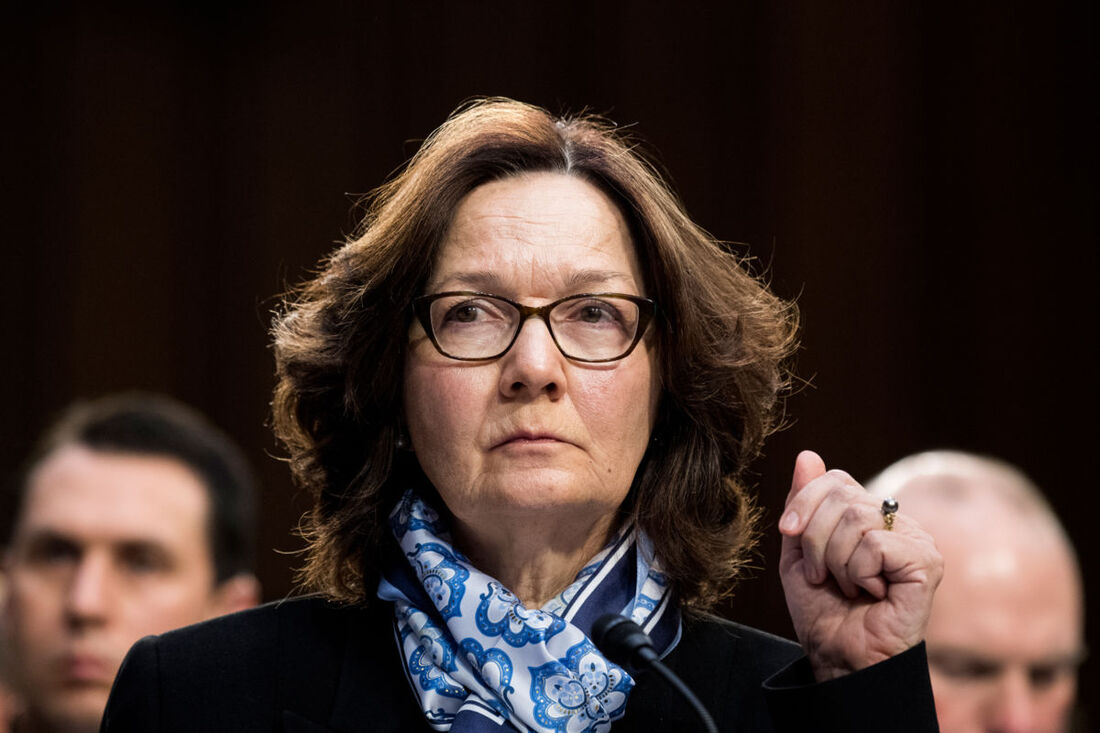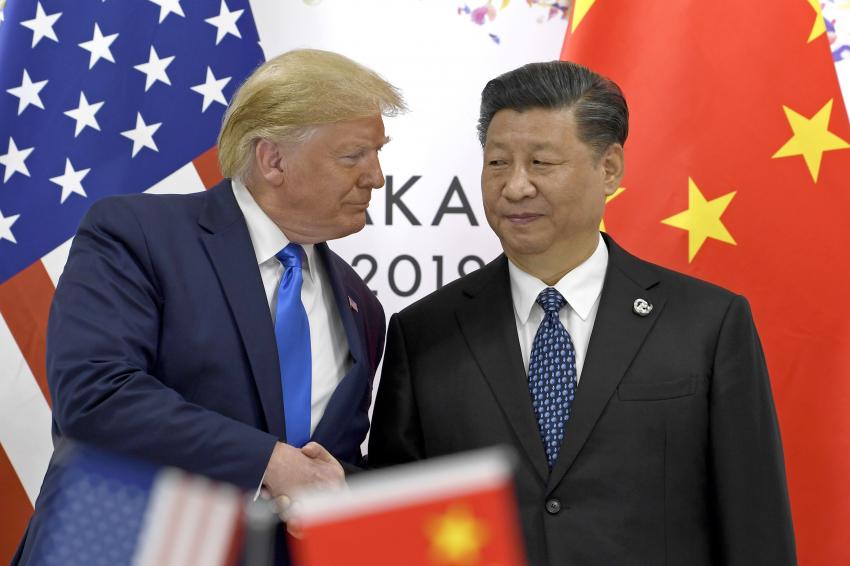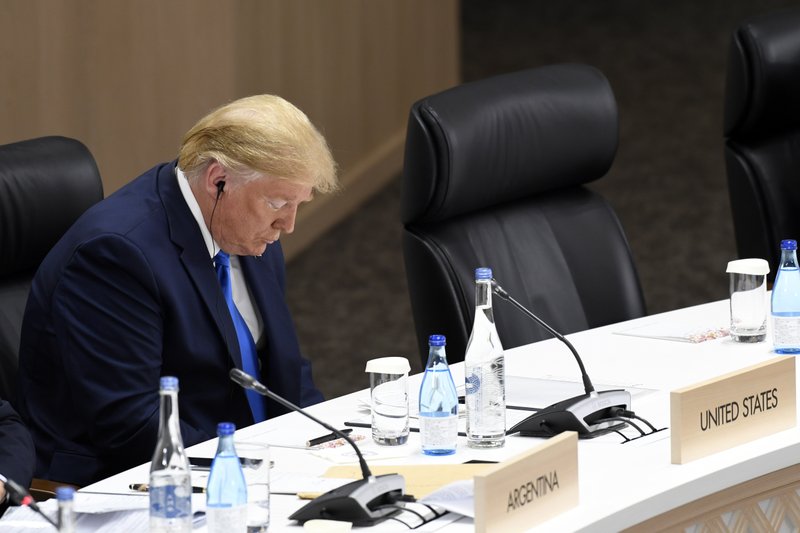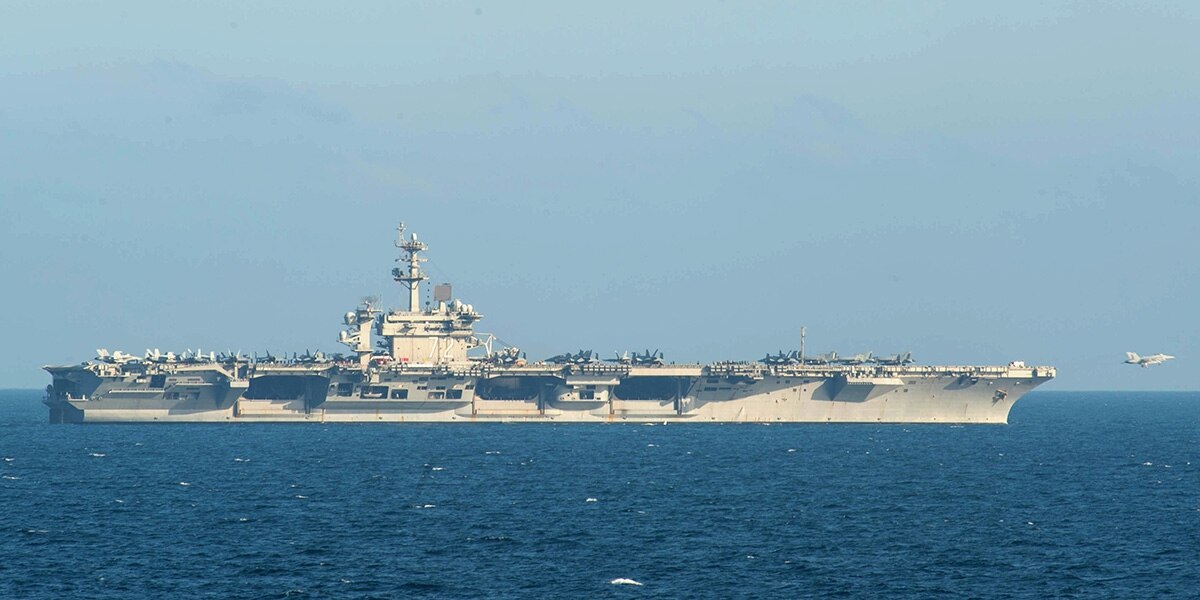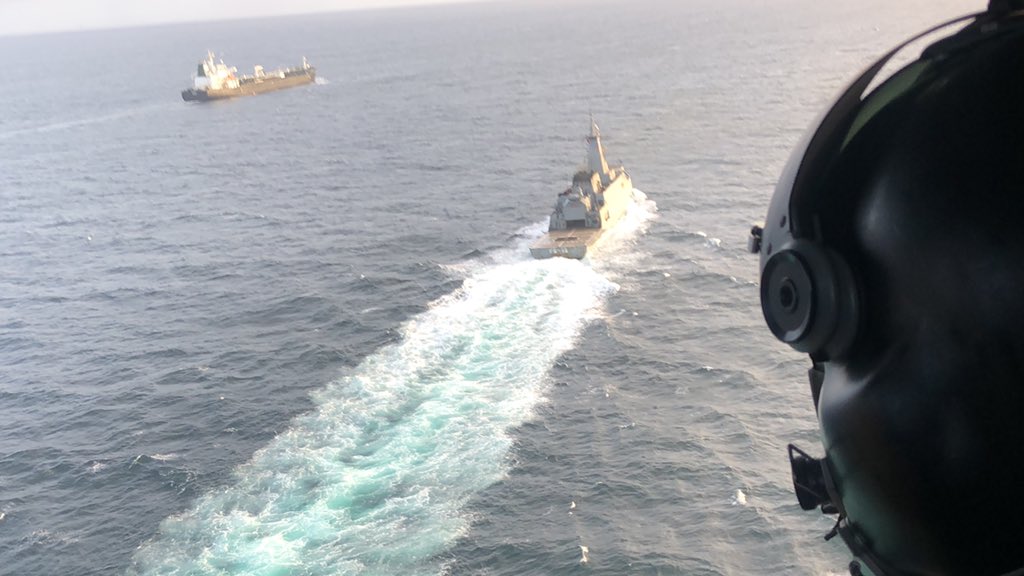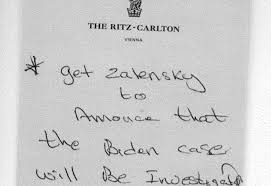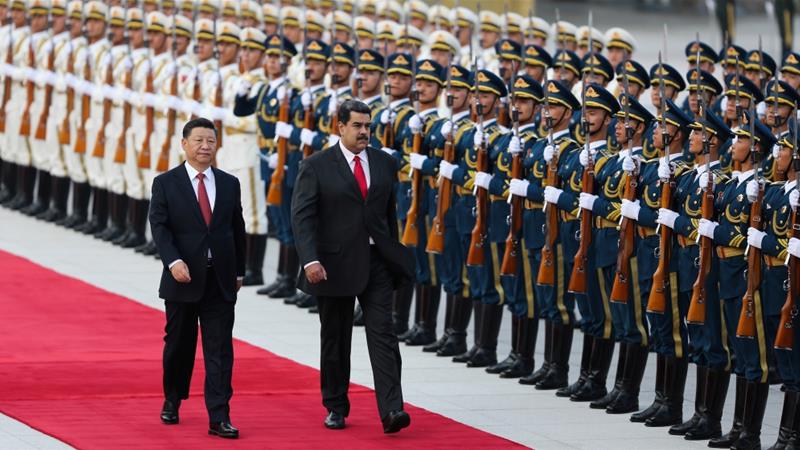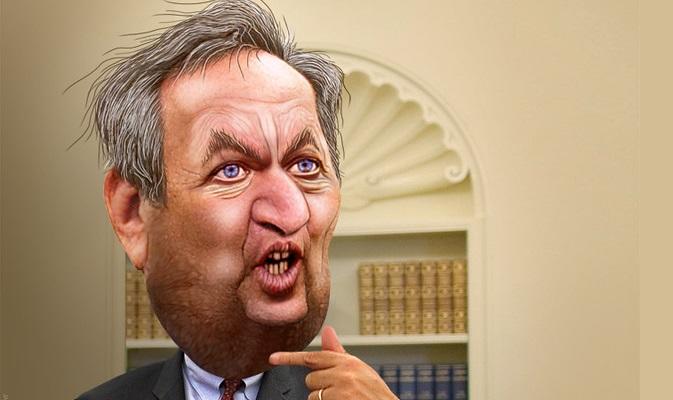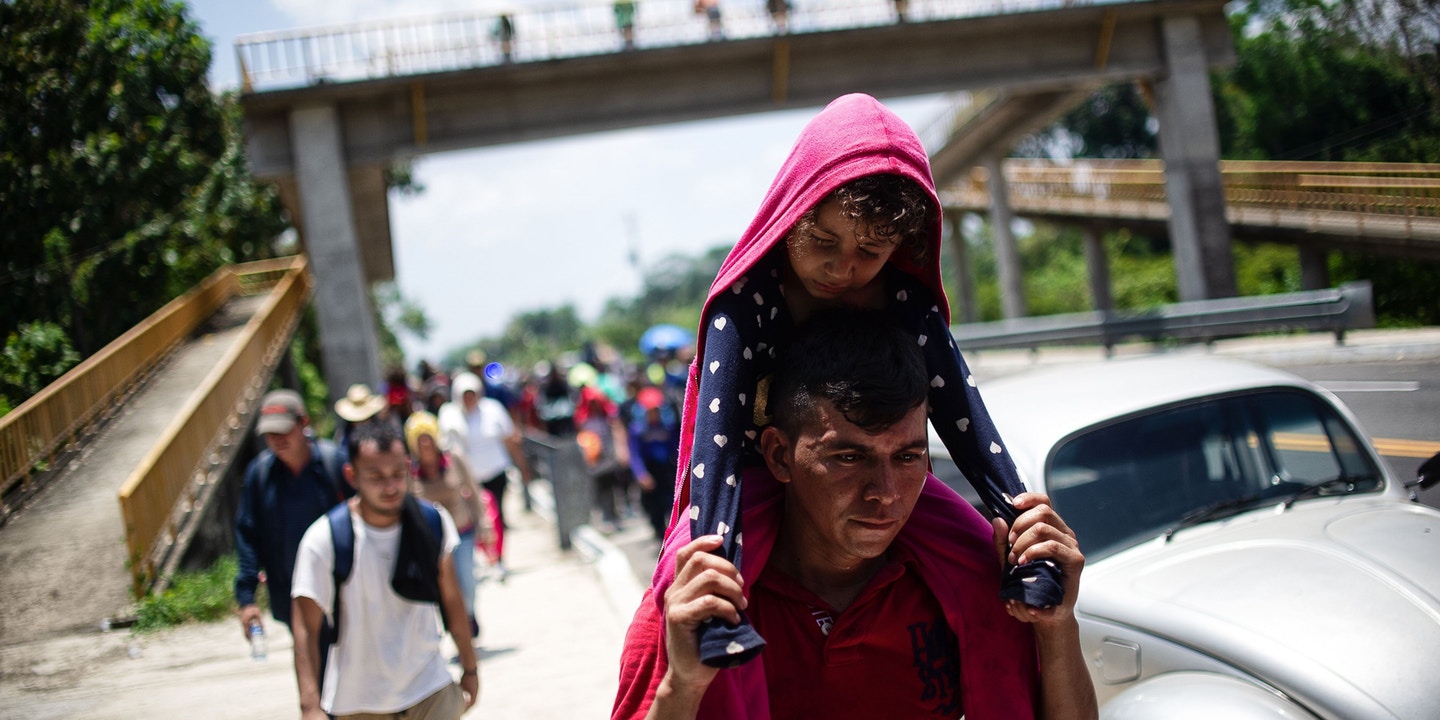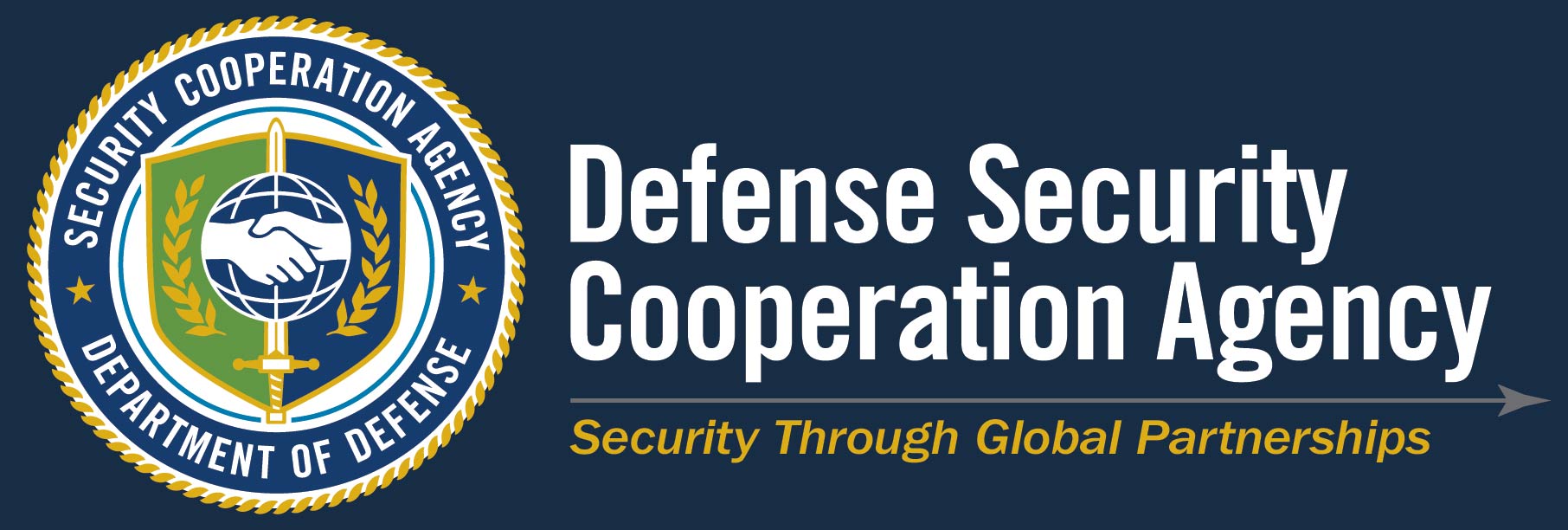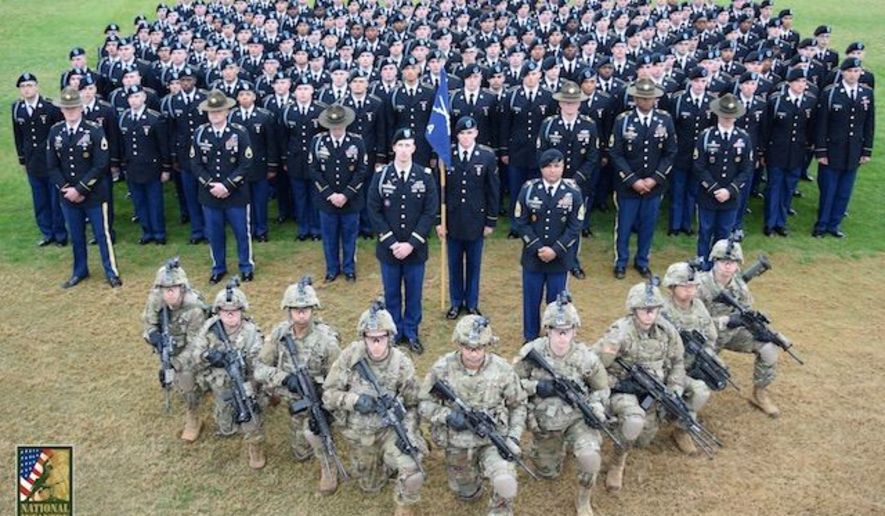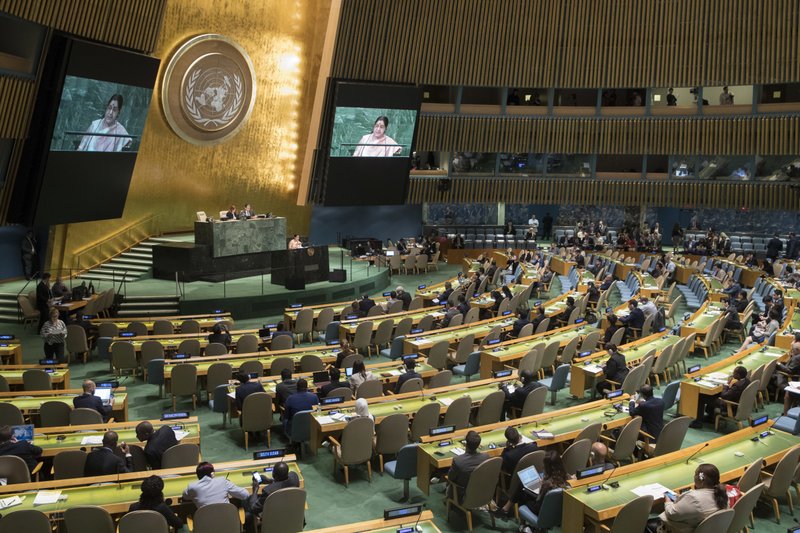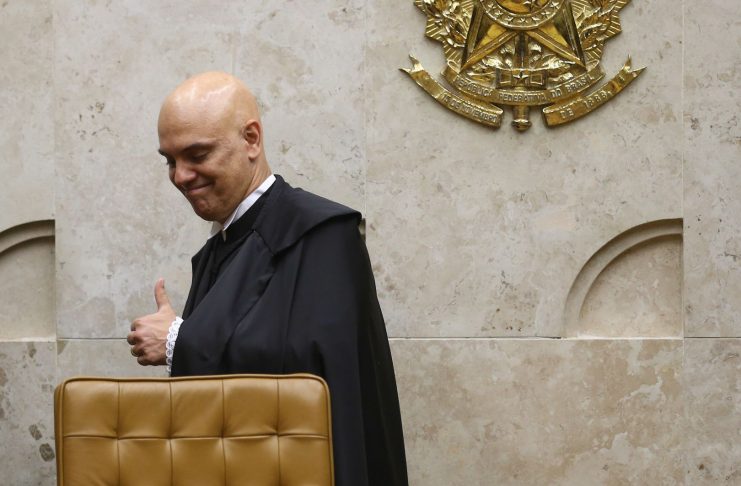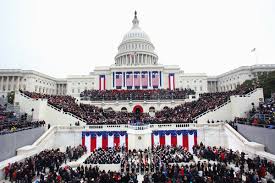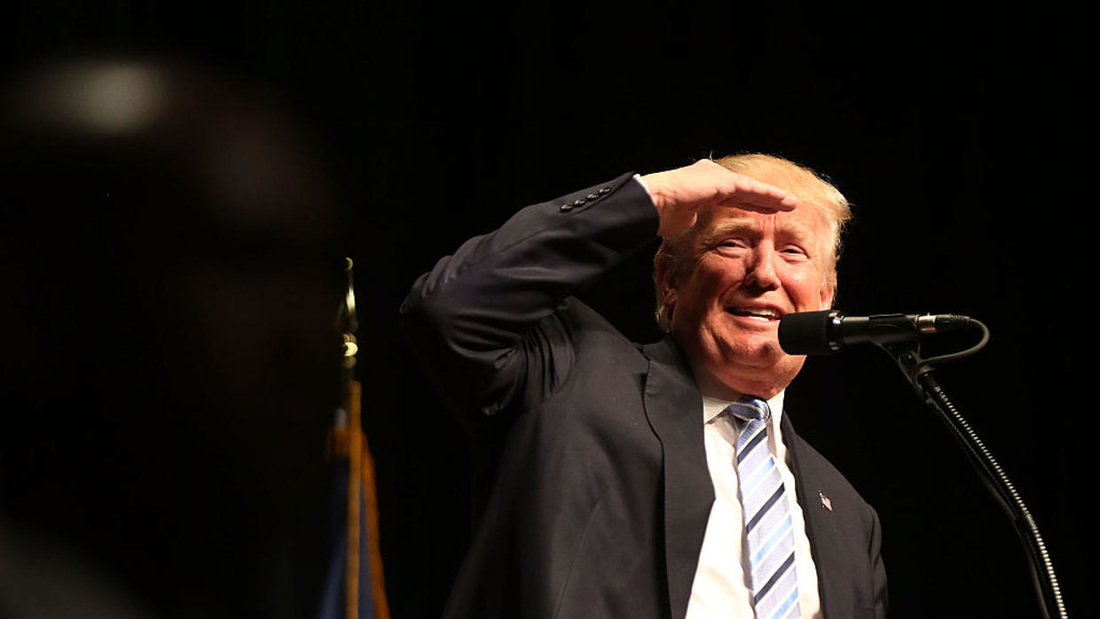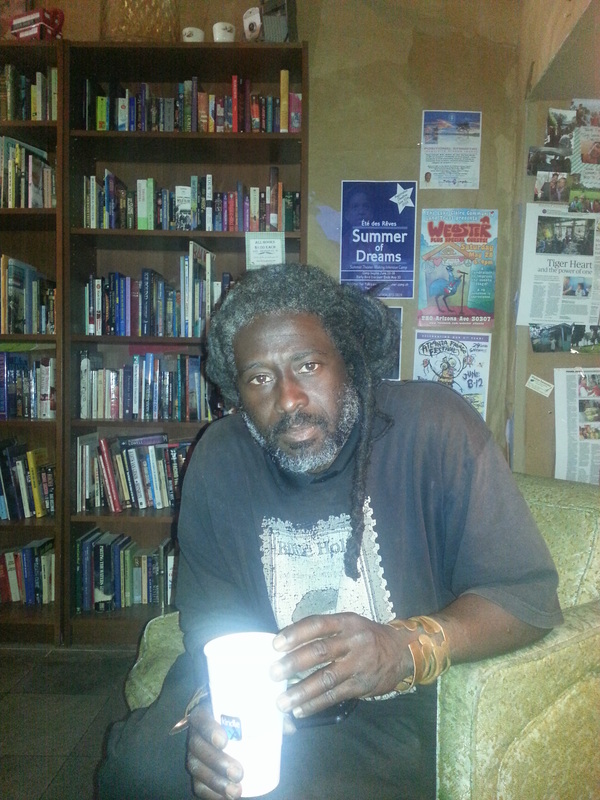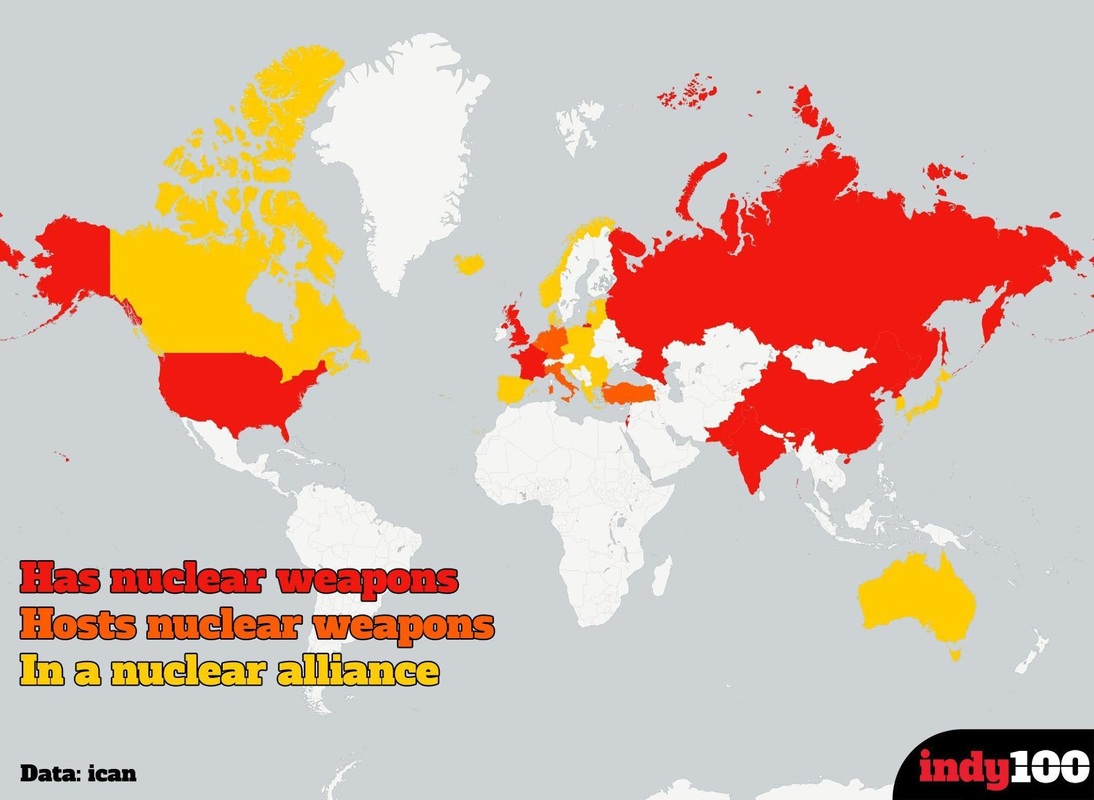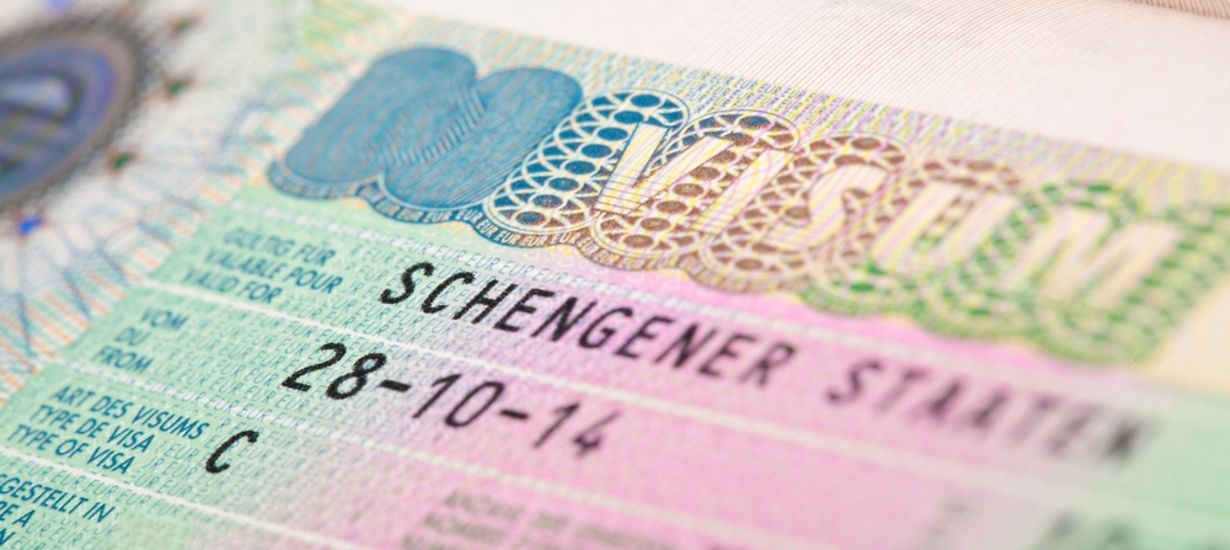ANAL 4 REAL 4 REAL 4REAL
Domestic Terrorism Strikes the U.S. Capitol ALL THE TIME 4 REEEEEEAAAAAL
Global Conflict Tracker
Court Approves Warrantless Surveillance Rules While Scolding F.B.I.
if things turn out badly, the government is responsible for the situation. we will stay out until pascal alexandre is released.theunionjournal.com/watch-chaotic-protests-grip-haitis-capital-as-demonstrators-torch-cars-demand-release-of-detained-police-officer-rt-world-news/
ASSAD: US Needs Terrorists, Uses Sanctions To Support Them
Your open letter iz coming soon obama
United States Efforts to Undermine the International Criminal Court
Legal Analysis of Impunity Agreements
Introduction The Bush Administration is attempting to negotiate bilateral impunity agreements with numerous countries around the globe. The goal of these agreements is to exempt U.S. military and civilian personnel from the jurisdiction of the ICC. The U.S. argues that such agreements are contemplated under Article 98(2) of the Rome Statute. Human Rights Watch disagrees. Such impunity agreements violate the Rome Statute and should be opposed. If State parties, as well as signatories of the Rome Statute, sign such agreements they would breach their legal obligations under the Rome Statute.
Related Material
EU Decision on ICC Sets "Vague Benchmarks"
HRW Press Release, September 30, 2002
I. Legal Analysis Article 98(2), which provides that the ICC may not proceed with a request for surrender that would require the requested state to act inconsistently with its obligations under international agreements, was included in the Rome Statute to provide an orderly and rational process for the handling of suspects among states cooperating with the Court. It was not intended to allow a state that has refused to cooperate with the Court to negotiate agreements that secure exemption for its citizens or otherwise undermine the effective functioning of the Court. Any State That Has Ratified the Rome Statute May Not Lawfully Sign an Agreement Providing Immunity from ICC Prosecution with a State that Has Repudiated or Has Not Signed the Rome Statute; To Do So Would Violate the Rome Statute. The Rome Statute grants the Court jurisdiction over the crimes of genocide, war crimes and crimes against humanity if they occur in the territory of a state party or were committed by its nationals (See article 12). While the Statute allows a state party to conduct its own investigation and prosecution, the Court still retains the authority to investigate or prosecute if a state is unwilling to do so. This authority acts as a guarantee against impunity and is fundamental. Article 98(2) cannot be read to permit a non-state party (and particularly, one that has repudiated the Rome Statute) to benefit by removing its nationals from the ICC's jurisdiction. This would undercut the jurisdictional regime established in the Rome Statute. In the instances covered by an impunity agreement, the ICC would be unable to prosecute individuals over which it should have jurisdiction. By turning over a person under an impunity agreement, a state party would be preventing the Court from stepping in and exercising jurisdiction if the government requesting the person proves unwilling to conduct an appropriate investigation or prosecution. By definition, any state that has repudiated the Rome Statute is unwilling to subject its investigations and prosecutions to ICC scrutiny. By granting a repudiating state exclusive jurisdiction over the ICC crimes, states would be opening the door to impunity. Therefore, the so-called "Article 98" agreements effectively alter the jurisdictional regime as established under the Rome Statute. For this reason, entering into an impunity agreement would violate a state party's obligations under the Rome Statute; the agreement itself would not be legally valid under Article 98. So that Articles 98(2) and 12 may be read consistently, Article 98(2) must be construed as a routing mechanism. Only state parties can benefit from an agreement that allows them first chance at prosecuting their own nationals for ICC crimes committed on the territory of another state. While Human Rights Watch does not favor such agreements, such a jurisdiction-routing mechanism is consistent with the overall goals of the Rome Statute to ensure that crimes covered by the ICC Statute are prosecuted by national courts subject to ICC scrutiny or by the ICC itself. Such agreements would still respect this guarantee against impunity, which is fundamental to the Rome Statute.
Any State That Has Signed But Not Yet Ratified the Rome Statute May Not Lawfully Sign an Agreement Providing Immunity from ICC Prosecution with a State that Has Repudiated or Has Not Signed the Rome Statute; To Do So Would Violate the "Object and Purpose" of the Rome Statute. Any state that has signed the Rome Statute is, according to Article 18 of the Vienna Convention on the Law of Treaties, "obliged to refrain from acts which would defeat the object and purpose" of the Rome Statute. The "purpose" of the Rome Statute, as made clear in the Preamble and Articles 12 and 27, is to establish a system of individual accountability for the most serious international crimes. As mentioned above, the treaty is also predicated on ICC review of national prosecutions to remove the possibility of impunity. States that have repudiated the Rome Statute have rejected the complementary role of the ICC; they have not agreed to the ICC's authority to assess national prosecutions and step in where appropriate and, in effect, they have not taken steps to eradicate impunity. Signatory states cannot lawfully confer exclusive jurisdiction over ICC crimes to repudiating or non-signatory states. Entering into impunity agreements would violate the signatory states' obligations under the Vienna Convention to refrain from acts that would defeat the object and purpose of the Rome Statute. II. Policy Assessment Facilitating widespread immunity for U.S. nationals through negotiated bilateral agreements with the United States would provide a dangerous precedent. By signing an impunity agreement with the United States, states parties and signatory states would be endorsing a two-tier rule of law: one that applies to U.S. nationals; another that applies to the rest of the world's citizens. This would significantly weaken international law and states should resist the Bush administration's ideologically driven attack on the ICC. If the United States is successful in obtaining impunity agreements from many states, it may encourage other nations, particularly those opposed to the ICC, to pursue similar immunity for their own citizens. This would fundamentally undermine the Court. It is also important for states parties and signatory states to recall that Article 98(2) was essentially inserted into the Rome Statute at the behest of the United States. States agreed to its insertion in order to retain U.S. involvement in the ICC project. Given that the U.S. has now officially repudiated the ICC, Washington has eliminated the underlying rationale for a bilateral agreement with the United States, since the Bush Administration would refuse to surrender an American suspect to the ICC even if the Court found the U.S. investigation or prosecution to have been a complete sham. These policy concerns complement the legal arguments and provide states with additional reasons to reject impunity agreements with the United States. III. Conclusion U.S. efforts to exploit Article 98(2) of the Rome Statute by entering into impunity agreements with states parties and signatory states must be opposed to ensure that the ICC is respected. At stake is the integrity of a vital instrument for international justice.
|
|
|
Pompeo Urges Southeast Asia to Cut Ties With ‘Bully’ China Firms
China sends stark warning after US army begins huge operation – ‘ready for war'
US Air Force used fake identities at least 100 times this
The Worst of All Possible Worlds? Echoes of Orwell’s Dystopian 1984. Mass Surveillance, Police State Rule, Struggle to Survive…
We will rock you: the world
US-led Bahrain meeting on Palestine: All the latest updates
Trump’s Love Affair with Oil Donald Trump, a mere real estate developer before becoming president, has not been shy about his love of the powerful oil industry, whether domestic or Middle Eastern. Defying Washington’s tradition of hiding the role of oil in foreign policy, he has embraced oil power exuberantly and unapologetically, as when he appointed Rex Tillerson, former CEO of Exxon-Mobil, as his first secretary of state shortly after taking office. Then last fall he scandalized the international community when he redeployed American troops to Eastern Syria to “secure our [sic] oil.” Most recently, his administration secretively doled out at least $113 million to oil companies in taxpayer-backed loans under the Paycheck Protection Program, intended for small businesses hurt by Covid-19. Now Trump’s brazenness is backfiring against his most recent Secretary of State. Members of the House Foreign Affairs Committee and Senate Foreign Relations Committee investigating Linick’s firing last month want to know if it was an act of retaliation by Pompeo. The secretary has denied the charge, but his timing was certainly suspect. As first reported by the Washington Post on May 16, Linick was wrapping up an investigation of Pompeo’s approval one year ago of unauthorized arms sales worth $8 billion to Saudi Arabia, defying the will of Congress. The weapons’ ultimate destination: the Saudis’ widely condemned war in Yemen, deemed the world’s greatest humanitarian crisis. Linick briefed the State Department of his findings before issuing his report, which assuredly set off alarm bells in Pompeo’s office and plausibly resulted in Linick’s abrupt dismissal. The congressman who originally asked for the investigation, Representative Eliot Engel, Chair of the House Foreign Affairs Committee, told the Washington Post, “We don’t have the full picture yet but it’s troubling that Secretary Pompeo wanted Mr. Linick pushed out before this work could be completed.” In his testimony Wednesday, Linick said a top department official “bullied” him, pressuring him not to pursue his investigation into arms sales to Saudi Arabia. Democratic lawmakers, in a statement released after the testimony, urged the administration “to immediately comply with outstanding requests for additional witness interviews and documents.” As with all things Middle East, it’s never easy to get the full picture right away. With oil riches gumming up so many human interactions, including war and pretexts for war, assassinations and regime changes, the path to the truth can be littered with lies. It took me decades of research and years of filtering that research into a book, for instance, to figure out what the Great Game for Oil had to do with the death of my father in a mysterious plane crash following his top-secret mission to Saudi Arabia. Now, at least, I know where to look and how to look when questions loom. I analogize this to peeling an onion, beginning with the most obvious question. First peel: Why did Democrats and Republicans object to arms sales to Saudi Arabia last year? The answer, in this case, can be boiled down to three words: cold blooded murder. The murder victim in this case was a Washington Post columnist and an exiled Saudi national named Jamal Khashoggi. Two months before his death in October, 2018, Khashoggi had written disparagingly about the Saudis’ disastrous war against Yemen, then in its third year. The war had become an acute international embarrassment, especially after Saudi coalition forces bombed a school bus on August 9, 2018 killing forty children and thirty-two nearby civilians. By August 19, CNN reported that the bomb used in the attack was a US-made, 227-kilogram laser guided bomb manufactured by Lockheed Martin.
FRENCH OPEN
fallout/radiation video & info
THE GREATEST TRANSLATER
|
|
|
|
Click to set custom HTML
|
|
IZMNEWZ PIC OF THE WEEK
|
|
|
|
US complicity in the Saudi-led genocide in Yemen spans Obama, Trump administrations
US complicity in the Saudi-led genocide in Yemen spans Obama, Trump administrationsJeff Bachman, American University School of International Service Nov. 26, 2018
MoreCommentsPrint(The Conversation is an independent and nonprofit source of news, analysis and commentary from academic experts.)
Jeff Bachman, American University School of International Service
(THE CONVERSATION) A Saudi-led coalition of states has been aggressively bombing Yemen and imposing an air and naval blockade of its ports for more than three years, leading U.N. Secretary-General Antonio Guterres to describe Yemen as “the world’s worst humanitarian crisis.”
As a scholar of genocide and human rights, I believe the destruction brought about by these attacks combined with the blockade amounts to genocide.
Based on my research, to be published in an upcoming issue of Third World Quarterly, I believe the coalition would not be capable of committing this crime without the material and logistical support of both the Obama and Trump administrations.
A ‘storm’ recast as ‘hope’
Yemen has been gripped by a civil war since 2015, pitting the Shia Houthi movement – which has fought for centuries for control of parts of Yemen – against a government backed by Sunni Saudi Arabia. Because of these religious differences, it would be easy to recast what is largely a political conflict in Yemen as a sectarian one.
That characterization fits Saudi and U.S. assertions that the Houthis are controlled by Shiite Iran, a claim that has not gone uncontested. Both the Saudis and the U.S. are hostile to Iran, so U.S. support of Saudia Arabia in Yemen represents what U.S. administrations have said are strategic interests in the region.
Besides Saudi Arabia, the coalition attacking Yemen includes the United Arab Emirates, Egypt, Morocco, Jordan, Sudan, Kuwait and Bahrain. Qatar was part of the coalition but is no longer.
During the first three years of “Operation Decisive Storm,” later renamed “Operation Renewal of Hope,” 16,749 coalition air attacks in Yemen were documented by the Yemen Data Project (YDP), which describes itself as an “independent data collection project aimed at collecting and disseminating data on the conduct of the war in Yemen.”
Based on the information available to it using open sources, YDP reports that two-thirds of the coalition’s bombing attacks have been against non-military and unknown targets. The coalition isn’t accidentally attacking civilians and civilian infrastructure – it’s doing it deliberately.
That’s evident from the kind – and volume – of civilian targets documented. They include places that are generally protected against attack even under the lax rules of international humanitarian law: Residential areas, vehicles, marketplaces and mosques as well as boats, social gatherings and camps for internally displaced persons.
Because of the role it plays in movement of people, food and medicine, Yemen’s transportation infrastructure is especially important. Airports, ports, bridges and roads have all been repeatedly attacked.
Yemen’s economic infrastructure – farms, private businesses and factories, oil and gas facilities, water and electricity lines and food storage – have also been hit. And the coalition has targeted and destroyed schools and medical facilities, too.
Finally, Yemen’s cultural heritage has been attacked. In all, at least 78 cultural sites have been damaged or destroyed, including archaeological sites, museums, mosques, churches and tombs, as well as numerous other monuments and residences that have great historical and cultural significance.
How to make a crisis
The attacks aren’t the only way the coalition is creating a massive humanitarian crisis.
The air and naval blockade, in effect since March 2015, “is essentially using the threat of starvation as a bargaining tool and an instrument of war,” according to the U.N. panel of experts on Yemen.
The blockade stops and inspects vessels seeking entry to Yemen’s ports. That allows the coalition to regulate and restrict Yemenis’ access to food, fuel, medical supplies and humanitarian aid.
In his analysis of the blockade’s legality, Dutch military scholar Martin Fink writes that the blockade means “massive time delays and uncertainty on what products would be allowed to enter.”
Despite U.N. efforts to alleviate some of the worst delays, imports are often held up for a long time. In some cases, food that makes it through the blockade has already spoiled, if entry is not denied altogether.
In some ways, the humanitarian crisis in Yemen is unprecedented and can be tied directly to the conflict. As the World Bank notes, “Yemen’s very difficult economic challenges before the current conflict cannot be compared to the intensely critical situation the country is facing today.”
Similarly, Tufts University scholar Alex de Waal describes Yemen as “the greatest famine atrocity of our lifetimes.” It was caused, writes de Waal, by the coalition “deliberately destroying the country’s food-producing infrastructure.”
The failing security for the people of Yemen has been compounded by a failing health system. The World Health Organization reported in September 2017 that only 45 percent of health facilities in Yemen were functional.
As Secretary-General Guterres put it, “Treatable illnesses become a death sentence when local health services are suspended and it is impossible to travel outside the country.”
As of February 2018, according to the Office of the High Commissioner for Human Rights, the coalition had killed 6,000 people in airstrikes and wounded nearly 10,000 more.
Yet, according to the OHCHR report, these counts are conservative. Tens of thousands of Yemenis have also died from causes related to the war. According to Save the Children, an estimated 85,000 children under five may have died since 2015, with more than 50,000 child deaths in 2017 alone from hunger and related causes.
Coalition actions in Yemen amount to nothing short of what Raphael Lemkin, the individual who coined the term “genocide,” referred to as a “synchronized attack on different aspects of life.”
Related
The coalition’s genocide in Yemen would not be possible without the complicity of the U.S. This has been a bipartisan presidential effort, covering both the Obama and Trump administrations.
U.S. arms are being used to kill Yemenis and destroy their country. In 2016, well after the coalition began its genocidal assault on Yemen, four of the top five recipients of U.S. arms sales were members of the coalition.
The U.S. has also provided the coalition with logistical support, including mid-air refueling, targeting advice and support, intelligence, expedited munitions resupply and maintenance.
Other than the sale of arms, perhaps the most significant contribution to the coalition’s ability to commit genocide in Yemen has been the provision of fuel and mid-air refueling of coalition warplanes, which was halted in early November 2018. By the middle of 2017, the U.S. had delivered over 67 million pounds of fuel to the coalition and refueled coalition aircraft more than 9,000 times.
Shared responsibility for genocide
As a genocide scholar, I believe that under international law, the U.S. shares responsibility with the coalition for genocide in Yemen.
What does this mean? It means that the U.S. must cease and desist all activities that facilitate genocide in Yemen. This would include stopping all sales of weapons and ending logistical support for coalition action.
In an ideal world, one in which all states are equally subjects before international law, the U.S. would also seek an advisory opinion from the International Court of Justice regarding what restitution it owes the people of Yemen for its role in the coalition’s genocide.
Similarly, the U.S. would request an International Criminal Court investigation into individual culpability of U.S. officials in both the Obama and Trump administrations for their role in facilitating the crimes committed in Yemen.
Of course, this is not an ideal world.
The U.S. recognizes neither the International Court of Justice’s authority to judge the legality of its actions, nor the International Criminal Court’s authority to investigate the suspected criminal acts of individual U.S. officials. Such an investigation could be triggered by a U.N. Security Council referral, but the U.S. would simply veto any such effort.
All that is left, then, is for the people of the U.S. to hold their own to account for the crimes committed in their names.
This article is republished from The Conversation under a Creative Commons license. Read the original article here: http://theconversation.com/us-complicity-in-the-saudi-led-genocide-in-yemen-spans-obama-trump-administrations-106896.
MoreCommentsPrint
MoreCommentsPrint(The Conversation is an independent and nonprofit source of news, analysis and commentary from academic experts.)
Jeff Bachman, American University School of International Service
(THE CONVERSATION) A Saudi-led coalition of states has been aggressively bombing Yemen and imposing an air and naval blockade of its ports for more than three years, leading U.N. Secretary-General Antonio Guterres to describe Yemen as “the world’s worst humanitarian crisis.”
- Unlimited Digital Access for 99¢
- Read more articles like this by subscribing to the San Francisco Chronicle
As a scholar of genocide and human rights, I believe the destruction brought about by these attacks combined with the blockade amounts to genocide.
Based on my research, to be published in an upcoming issue of Third World Quarterly, I believe the coalition would not be capable of committing this crime without the material and logistical support of both the Obama and Trump administrations.
A ‘storm’ recast as ‘hope’
Yemen has been gripped by a civil war since 2015, pitting the Shia Houthi movement – which has fought for centuries for control of parts of Yemen – against a government backed by Sunni Saudi Arabia. Because of these religious differences, it would be easy to recast what is largely a political conflict in Yemen as a sectarian one.
That characterization fits Saudi and U.S. assertions that the Houthis are controlled by Shiite Iran, a claim that has not gone uncontested. Both the Saudis and the U.S. are hostile to Iran, so U.S. support of Saudia Arabia in Yemen represents what U.S. administrations have said are strategic interests in the region.
Besides Saudi Arabia, the coalition attacking Yemen includes the United Arab Emirates, Egypt, Morocco, Jordan, Sudan, Kuwait and Bahrain. Qatar was part of the coalition but is no longer.
During the first three years of “Operation Decisive Storm,” later renamed “Operation Renewal of Hope,” 16,749 coalition air attacks in Yemen were documented by the Yemen Data Project (YDP), which describes itself as an “independent data collection project aimed at collecting and disseminating data on the conduct of the war in Yemen.”
Based on the information available to it using open sources, YDP reports that two-thirds of the coalition’s bombing attacks have been against non-military and unknown targets. The coalition isn’t accidentally attacking civilians and civilian infrastructure – it’s doing it deliberately.
That’s evident from the kind – and volume – of civilian targets documented. They include places that are generally protected against attack even under the lax rules of international humanitarian law: Residential areas, vehicles, marketplaces and mosques as well as boats, social gatherings and camps for internally displaced persons.
Because of the role it plays in movement of people, food and medicine, Yemen’s transportation infrastructure is especially important. Airports, ports, bridges and roads have all been repeatedly attacked.
Yemen’s economic infrastructure – farms, private businesses and factories, oil and gas facilities, water and electricity lines and food storage – have also been hit. And the coalition has targeted and destroyed schools and medical facilities, too.
Finally, Yemen’s cultural heritage has been attacked. In all, at least 78 cultural sites have been damaged or destroyed, including archaeological sites, museums, mosques, churches and tombs, as well as numerous other monuments and residences that have great historical and cultural significance.
How to make a crisis
The attacks aren’t the only way the coalition is creating a massive humanitarian crisis.
The air and naval blockade, in effect since March 2015, “is essentially using the threat of starvation as a bargaining tool and an instrument of war,” according to the U.N. panel of experts on Yemen.
The blockade stops and inspects vessels seeking entry to Yemen’s ports. That allows the coalition to regulate and restrict Yemenis’ access to food, fuel, medical supplies and humanitarian aid.
In his analysis of the blockade’s legality, Dutch military scholar Martin Fink writes that the blockade means “massive time delays and uncertainty on what products would be allowed to enter.”
Despite U.N. efforts to alleviate some of the worst delays, imports are often held up for a long time. In some cases, food that makes it through the blockade has already spoiled, if entry is not denied altogether.
In some ways, the humanitarian crisis in Yemen is unprecedented and can be tied directly to the conflict. As the World Bank notes, “Yemen’s very difficult economic challenges before the current conflict cannot be compared to the intensely critical situation the country is facing today.”
Similarly, Tufts University scholar Alex de Waal describes Yemen as “the greatest famine atrocity of our lifetimes.” It was caused, writes de Waal, by the coalition “deliberately destroying the country’s food-producing infrastructure.”
The failing security for the people of Yemen has been compounded by a failing health system. The World Health Organization reported in September 2017 that only 45 percent of health facilities in Yemen were functional.
As Secretary-General Guterres put it, “Treatable illnesses become a death sentence when local health services are suspended and it is impossible to travel outside the country.”
As of February 2018, according to the Office of the High Commissioner for Human Rights, the coalition had killed 6,000 people in airstrikes and wounded nearly 10,000 more.
Yet, according to the OHCHR report, these counts are conservative. Tens of thousands of Yemenis have also died from causes related to the war. According to Save the Children, an estimated 85,000 children under five may have died since 2015, with more than 50,000 child deaths in 2017 alone from hunger and related causes.
Coalition actions in Yemen amount to nothing short of what Raphael Lemkin, the individual who coined the term “genocide,” referred to as a “synchronized attack on different aspects of life.”
Related
Neither trickle or tsunami, a gentle change comes to Congress...
Easing of energy regulations boosts U.S. oil production [Opinion]- Top Obama-era officials urge immediate end to U.S. involvement...
- News // PoliticsDeVos proposes overhaul to campus sexual misconduct rules
- Trump judicial fantasy: What Chief Justice Roberts could have...
- Ex-NAACP chief Ben Jealous gets Obama's blessing as possible...
- Letter to the Editor: Where was tough press when Obama was...
- Winning on the issues
- NYPD intelligence chief says package sent to CNN appears linked...
- White House condemns attempted attacks on Obama, Clinton,...
The coalition’s genocide in Yemen would not be possible without the complicity of the U.S. This has been a bipartisan presidential effort, covering both the Obama and Trump administrations.
U.S. arms are being used to kill Yemenis and destroy their country. In 2016, well after the coalition began its genocidal assault on Yemen, four of the top five recipients of U.S. arms sales were members of the coalition.
The U.S. has also provided the coalition with logistical support, including mid-air refueling, targeting advice and support, intelligence, expedited munitions resupply and maintenance.
Other than the sale of arms, perhaps the most significant contribution to the coalition’s ability to commit genocide in Yemen has been the provision of fuel and mid-air refueling of coalition warplanes, which was halted in early November 2018. By the middle of 2017, the U.S. had delivered over 67 million pounds of fuel to the coalition and refueled coalition aircraft more than 9,000 times.
Shared responsibility for genocide
As a genocide scholar, I believe that under international law, the U.S. shares responsibility with the coalition for genocide in Yemen.
What does this mean? It means that the U.S. must cease and desist all activities that facilitate genocide in Yemen. This would include stopping all sales of weapons and ending logistical support for coalition action.
In an ideal world, one in which all states are equally subjects before international law, the U.S. would also seek an advisory opinion from the International Court of Justice regarding what restitution it owes the people of Yemen for its role in the coalition’s genocide.
Similarly, the U.S. would request an International Criminal Court investigation into individual culpability of U.S. officials in both the Obama and Trump administrations for their role in facilitating the crimes committed in Yemen.
Of course, this is not an ideal world.
The U.S. recognizes neither the International Court of Justice’s authority to judge the legality of its actions, nor the International Criminal Court’s authority to investigate the suspected criminal acts of individual U.S. officials. Such an investigation could be triggered by a U.N. Security Council referral, but the U.S. would simply veto any such effort.
All that is left, then, is for the people of the U.S. to hold their own to account for the crimes committed in their names.
This article is republished from The Conversation under a Creative Commons license. Read the original article here: http://theconversation.com/us-complicity-in-the-saudi-led-genocide-in-yemen-spans-obama-trump-administrations-106896.
MoreCommentsPrint
THE JOB JUST FOR YOU!!
|
|
Learn more about
us debt.
Click to set custom HTML
Click to set custom HTML
| ||||||||
Category: News NHK World TV | ||||||||
 1:00 1:00  Fee Fee  Remind Remind  Share Share |
| Event Page Powered by Live Matrix |
Click to set custom HTML
|
|
|
RIGHT PLACE @ THE RIGHT TIME

www.mediabistro.com/career-advice/
IZMNEWZ
links to stay focuz on:
http://www.congoo.com/World
http://www.newslink.org/nett.html
http://www.newslink.org/metnews.html
http://www.congoo.com/immigration
http://www.congoo.com/dbuGALAXY
WATCH LIVE!!!!
http://www.livestation.com/channels
IZMNEWZ
links to stay focuz on:
http://www.congoo.com/World
http://www.newslink.org/nett.html
http://www.newslink.org/metnews.html
http://www.congoo.com/immigration
http://www.congoo.com/dbuGALAXY
WATCH LIVE!!!!
http://www.livestation.com/channels
USGS Earthquake watch 5.0+
IBM honors women leaders in AI
U.S. officials have concluded that drone attacks on Saudi Arabia’s oil
|
|
|
|
|
|
http://www.news.at/
|
|
|
who stole the gold? ,ptahsaid "buy Gold " not give it away. |
USGS Earthquake watch 5.0+ |
|
THEY KNEW! Leaked PELOSI Documents Prove Hillary And Obama LIED About Benghazi!
31Aug, 2016by Greg Campbell Print this articleFont size -16+When it comes to Benghazi, there can ONLY be two possible narratives: either the Obama Administration knew that the American consulate was under a terrorist attack and did nothing as Americans died. Or, alternatively, they were so detached from the realities of the situation in Libya that they didn’t know. In either case, their actions are nothing short of criminal. Of course, it seems abundantly clear that not only was the Obama Administration unwilling to grant security requests from Ambassador Stevens because doing so would compromise the validity of their “soft touch” foreign policy in the region, but that the top State Department leaders were petrified by inaction as Americans died in the terrorist attack. It’s also readily apparent that as the consulate smoldered, the Obama Administration was infinitely more concerned about covering-up their own ineptitude and thus crafted a ludicrous narrative concerning a YouTube video as the genesis of the “protest” that was, in reality, an orchestrated and choreographed terrorist attack. Thanks to the efforts of a Romanian hacker, Americans can now see that Democrats were well aware of the falsehoods being pushed by the Obama Administration in the days and weeks after the terrorist attack. An internal memo from Nancy Pelosi’s office indicates that the former Speaker of the House knew that the information being pushed by the Obama Administration was false. In the memo, Democrats were issued talking points of how to spin the scandal. In fact, the memo makes very clear that Democrats are to treat the terrorist attack as a tragedy, NOT a scandal. Of course, it is a scandal when a terrorist attack is orchestrated thanks to idiotic policy and government inaction… Take a look below and see what Democrats were most concerned about as American families grieved for their lost loved ones. Further, behold the Obama Administration’s legacy as the “most transparent” presidential administration in history… |
|
Obama signs anti-protest Trespass Bill Published time: 9 Mar, 2012 20:52Edited time: 10 Mar, 2012 00:52
Get short URL
US President Barack Obama
34.8K27
Only days after clearing Congress, US President Barack Obama signed his name to H.R. 347 on Thursday, officially making it a federal offense to cause a disturbance at certain political events — essentially criminalizing protest in the States.
TagsCrime, Obama, Protest, Law, USA, Planes RT broke the news last month that H.R. 347, the Federal Restricted Buildings and Grounds Improvement Act of 2011, had overwhelmingly passed the US House of Representatives after only three lawmakers voted against it. On Thursday this week, President Obama inked his name to the legislation and authorized the government to start enforcing a law that has many Americans concerned over how the bill could bury the rights to assemble and protest as guaranteed in the US Constitution. Under H.R. 347, which has more commonly been labeled the Trespass Bill by Congress, knowingly entering a restricted area that is under the jurisdiction of Secret Service protection can garner an arrest. The law is actually only a slight change to earlier legislation that made it an offense to knowingly and willfully commit such a crime. Under the Trespass Bill’s latest language chance, however, someone could end up in law enforcement custody for entering an area that they don’t realize is Secret Service protected and “engages in disorderly or disruptive conduct” or “impede[s] or disrupt[s] the orderly conduct of Government business or official functions.” The Secret Service serves as the police that protects not just current and former American presidents, but are also dispatched to monitor special events of national significance, a category with a broad cast of qualifiers. In the past, sporting events, state funerals, inaugural addresses and NATO and G-8 Summits have been designated as such by the US Department of Homeland Security, the division that decides when and where the Secret Service are needed outside of their normal coverage. Mara Verheyden-Hilliard of the Partnership for Civil Justice Fund tells the International Business Times that the Trespass Bill in its current form “means it's easier to prosecute under 'knowingly,'” instead of both knowingly and willfully, “which is an issue because someone could knowingly enter a restricted but not necessarily realize they are committing a crime.” Speaking with IB Times, Verheyden-Hilliard tries to lay to rest claims that the Constitution will be crippled by the Trespass Bill, but acknowledges that it does indeed allow law enforcement to have added incentive to arrest protesters who could be causing a disturbance. "[HR 347] has been described as a death knell for the First Amendment, but that isn't supported by the facts," Verheyden-Hilliard adds. "This has always been a bad law." Advertisement: Replay Ad Gabe Rottman of the American Civil Liberties Union adds to IB Times, "Bottom line, it doesn't create any new violations of the law.” So far, however, it has raised awareness of the levels that the US government are willing to go to in order to make it harder to express ones’ self. Under the act, protesting in areas covered by Secret Service could land a demonstrator behind bars, and the thing about the Secret Service (in case you couldn’t tell by their name), is that they don’t always make it clear where they are. You could even say that the service they provide, at times, is kept secret. Presidential hopefuls Newt Gingrich, Mitt Romney and Rick Santorum are now officially covered under Secret Service protection, making it a federal offense to disrupt a campaign stop. That means whether it’s by way of a glitter bomb protest or causing a disturbance on the same Holiday Inn hotel floor that Santorum is staying in, doing such could cause a bit of a legal battle for the persons involved. Although the G-8 Summit originally scheduled for Chicago this spring would have made much of the Windy City a protected area where crimes could easily be tacked on to arrested protesters, the event was moved this week to the presidential retreat at Camp David. In turn, many have suggested that the White House is only going out of their way to limit protesting rights. While a Chicago summit would have meant the Trespass Bill could have been enforced in the same area where thousands of demonstrators were expected to protest, moving the event to a heavily fortified rural location will instead deter protesters from likely coming close atto the meeting at all. And before you forget, the president can now detain you for getting too close to his front yard, order yourassassination if the country considers you a threat and lock you away for life with no charge if you’re alleged to be a terrorist. You, on the other hand, can’t yell obscenities at Newt Gingrich without risking arrest.
Share on FacebookShare on Twitter
Sponsored Links
More From The Web
NATO against NATO? Turkey Lambasts US Role in Supporting ISIS-Daesh in Syria Introductory Note by Michel Chossudovsky By Salman Rafi Sheikh
Global Research, January 05, 2017
New Eastern Outlook 5 January 2017
Region: Middle East & North Africa, USA
Theme: Intelligence, Terrorism, US NATO War Agenda
In-depth Report: SYRIA: NATO'S NEXT WAR?
12
13 0
25 Both the US and Turkey support ISIS-Daesh. And now they are accusing one another. From the very outset the recruitment, training and financing of the terrorists was a joint US-NATO-Turkey operation. According to Israeli intelligence (Debka, August14, 2011): NATO headquarters in Brussels and the Turkish high command are meanwhile drawing up plans for their first military step in Syria, which is to arm the rebels with weapons for combating the tanks and helicopters spearheading the Assad regime’s crackdown on dissent. … NATO strategists are thinking more in terms of pouring large quantities of anti-tank and anti-air rockets, mortars and heavy machine guns into the protest centers for beating back the government armored forces. (DEBKAfile, NATO to give rebels anti-tank weapons, August 14, 2011) This initiative, which was also supported by Saudi Arabia and Qatar, involved a process of organized recruitment of thousands of jihadist “freedom fighters”, reminiscent of the enlistment of Mujahideen to wage the CIA’s jihad (holy war) in the heyday of the Soviet-Afghan war: Also discussed in Brussels and Ankara, our sources report, is a campaign to enlist thousands of Muslim volunteers in Middle East countries and the Muslim world to fight alongside the Syrian rebels. The Turkish army would house these volunteers, train them and secure their passage into Syria. (Ibid, emphasis added) These mercenaries were subsequently integrated into US and allied sponsored terrorist organizations including Al Nusrah and ISIS. Michel Chossudovsky, Global Research, January 5, 2016 * * * While it may seem too much to say at this point of time that NATO, given the gravity of the situation triggered by the out-going US president’s nebulous foreign policy, is disintegrating, what is happening is that the Western military alliance is facing an unprecedented crisis. This crisis is certainly as unusual and dramatic as any Shakespearean tragedy. More than a strong military alliance, NATO is at its worst and looks like a house divided against itself. It looked like this when Turkey, second biggest military power in the western alliance, point-blank accused the Obama administration of covertly supporting ISIS and other terror outfits, which are bent upon destroying Iraq and Syria and are now likely to target Turkey too. Turkish President Recep Erdogan alleged, giving the Obama administration a ‘new-year-surprise’, on last Wednesday, December 28 that Turkey is in possession of “confirmed evidence, with pictures, photos and videos” of the US’ support to ISIS. While Erdogan had previously lambasted the US for supporting Gulen, Erdogan’s enemy number one and a potential terrorist according to Turkish officials, this time he took it to the next level and blamed the US, for the first time ever, for continuously supporting Daesh and Kurds. We already know that the US has been officially supporting certain ‘moderate groups’ in Syria and that this support has directly contributed to the intensification of the conflict in Syria. What we know now is the support US has been providing to the most devastating terror groups the world has ever seen. Gen. Michael Flynn, former head of the US Defence Intelligence Agency (and National Security Advisor-designate in the Trump administration), had himself claimed last year in a TV interview that the rise of the IS was a “wilful decision” by the Obama administration in furtherance of its agenda to overthrow Syrian President Bashar al-Assad. The support, as such, does exist. As a matter of fact, the recently announced lifting of restrictions on the supply of heavy weapons to these so-called moderates is yet another irrefutable evidence of the support the US continues to provide to these groups who are directly threatening the lives of those fighting Daesh and other terror networks. Just a day before Erdogan lambasted the US role, Maria Zakharova, a Russian foreign ministry spokeswoman, said that the policy change – set out in the annual defence policy bill and signed into law by the US President Barack Obama on December 23 – would lead to weapons ending up “in the hands of jihadists with whom the sham ‘moderate’ opposition have long acted jointly.” “Such a decision is a direct threat to the Russian air force, to other Russian military personnel, and to our embassy in Syria, which has come under fire more than once. We therefore view the step as a hostile one,” Zakharova said in the statement. In this context, Turkey’s lash out against the US is a reflection of the growing frustration with the dual policies (read: rounds of negotiations with Russia were combined with supply of weapons to terrorists) the US has been following in the region. For Turkey, continuous US support for Kurds marks the red line that the ‘super power’ has violated many times and that it is unwilling to cut-off. Whereas the allegation that a NATO member (the US) is trying to destabilize another NATO member (Turkey) is a reflection of a crisis brewing in the alliance, it also marks the strong urge in the region to oust the US (read: a number of other countries including Iran have tacitly claimed to have evidence of the support US has been providing to Daesh) and embrace Russia as an ally, truly capable of and willing enough to counter existential threats such as ISIS. With Turkey taking a series of steps to re-write its relations with the West, including the EU (read: Turkey is planning to upgrade its Customs deal with the EU in the first half of 2017), and with Turkey distancing itself from playing a second fiddle to the US in Syria and Iraq, a potential exit of the US from the region is looking imminent. It is this potential and probable ‘exit’ from the region that seems to have prompted Erdogan to set the trajectory of his new foreign policy in motion without waiting for the new US president to assume responsibilities. The new trajectory has excluded, interestingly enough, the US only as Turkey has invited both Saudi Arabia and Qatar to formally join the trilateral forum to discuss the Syrian endgame. These two GCC states, which have been deeply involved in the Syrian conflict, would know that the US has rendered itself fairly irrelevant to the endgame in Syria. Therefore, the strong likelihood is that they will cooperate – tacitly at least – with the Russian-Turkish move to get the opposition to sit across the table with the Syrian government. Significantly enough, at a meeting between Qatari Foreign Minister Sheikh Mohammed Al-Thani and the visiting Turkish Foreign Minister Mevlut Cavusoglu in Doha on last Monday, the Saudi-backed Chief Negotiator for the Syrian Opposition, Riyad Hijab was also present. Again, Çavuşoğlu had arrived in Doha late Sunday from the Saudi city of Jeddah, where he had participated in an emergency meeting of the Organization of Islamic Cooperation’s (OIC) executive committee. The emergency meeting in Jeddah was held to discuss recent developments in the war-torn Syria, especially in the northern city of Aleppo. That Saudi Arabia and its allies are also supporting these developments is evident from the recent statement issued by Riyad Hijab. The Syrian opposition’s main political body on last Tuesday, December 27, urged rebel groups to cooperate with “sincere regional efforts” to reach a ceasefire, but said it had not been invited to any conference, referring to the Kazakhstan meeting. “We support the shifts in positions of some international powers and the positive, sincere efforts that could represent a starting point for realising the Syrian people’s aspirations by reaching an agreement that brings security and stability,” Riyad Hijab said in a written statement distributed to the press. While the ‘known-unknown’ here is the behind-the-scene bargain going on between Russia/Iran and Saudi Arabia via Turkey, the development itself indicates the growing sense in the region of the need to re-define the US’ traditional role in the Middle East. This redefinition, as the series of developments indicates, is about limiting the US involvement and increasing the role that these regional countries can themselves play. Erdogan’s charge sheet against the US has accelerated the US exit and put other regional countries in the position to tap into this scenario—a scenario that countries like Saudi Arabia can use to get out of the financial, political and military crisis they are currently immersed in. Salman Rafi Sheikh, research-analyst of International Relations and Pakistan’s foreign and domestic affairs, exclusively for the online magazine “New Eastern Outlook”. The original source of this article is New Eastern Outlook
Copyright © Salman Rafi Sheikh, New Eastern Outlook, 2017
REALLY? really! REALLY!
There is a serious confusion about statements made yesterday by the Trump administration. It sets the fight against ISIS as the top priority and no longer demands an immediate leaving of Bashar Assad as the Syrian president. Reports try to sell this as a new position. But it is not new at all. The U.S. Ambassador to the UN Nikki Haley announced a “change of priorities”: “You pick and choose your battles and when we’re looking at this, it’s about changing up priorities and our priority is no longer to sit there and focus on getting Assad out,” U.S. Ambassador Nikki Haley told a small group of reporters. Secretary of State Tillerson confirmed that position: U.S. Secretary of State Rex Tillerson, speaking in Ankara on Thursday, said Assad’s longer-term status “will be decided by the Syrian people.” Southfront headlines the Haley talk as ‘Assad Must Not Go’. The International Business Times wrote about those statements: The United States has announced a shift in its diplomatic policy on Syria and is no longer insisting that its president Bashar al-Assad be removed as the head of the war-torn country.In a clear departure from the Obama administration’s stance on Assad, and against EU policy, the US is now moving its focus to its battle with Isis. But the Trump administration statements are not new at all. The “announced” positions were established under Obama: President Barack Obama spent a significant portion of his final State of the Union speech discussing the fight against the terrorist group ISIS.
…
Obama said that fighting ISIS (also known as the Islamic State, ISIL, or Daesh) and other terrorists is the top priority of his administration. Also in January 2016 then Secretary of State Kerry used a similar wording as Tillerson used now: “It’s up to the Syrians to decide what happens to Assad,” Kerry said. “They are the negotiators and they will decide the future.””It’s up to the Syrians to decide what happens to Assad,” Kerry said. “They are the negotiators and they will decide the future.” There is no change of policy. The top priority has been and will be for a while the fight against ISIS. The U.S. will use this to occupy the eastern parts of Syria. When ISIS is suppressed enough to no longer be an immediate issue the removal of Assad will again become a top priority. That Assad’s position will be “decided by the Syrian people” is just obfuscating as long as it is not said WHICH Syrian people are HOW to decide over it. The War On Syria will go on until the U.S. really changes its positions and until the Wahhabi oil sheiks stop their financing of their various Takfiri mercenaries – be they ISIS, al-Qaeda or whatever name they want to apply. The original source of this article is Moon of Alabama
Copyright © Moon of Alabama, Moon of Alabama, 2017
Having listened stoically for the past two months to accusations without evidence that Moscow "hacked the US election", and that Hillary's loss was indirectly due to Putin's alleged meddling, which resulted in Obama's expulsion of 35 Russian diplomats, on Wednesday Russian Foreign Minister Sergey Lavrov finally snapped, and lashed out at the ongoing US election scapegoating fiasco, saying that leaders and top officials from the UK, Germany, and France have “grossly interfered” in US internal affairs, “campaigned” for Hillary Clinton, and openly “demonized” Donald Trump.
Unlike US accusations of Russian interference, at least Lavrov's claim can be substantiated with a simple google search of news event in mid to late 2016. Speaking during a press conference following a meeting with his Austrian counterpart Sebastian Kurz, Lavrov said his angry outburst was because Moscow “is tired" of accusations it meddled in the US election. In fact, Lavrov said, it is time to “acknowledge the fact” that it was the other way around. “US allies have grossly interfered in America’s internal affairs, in the election campaign,” Lavrov said, quoted by RT. “We noticed that Angela Merkel, Francois Hollande, Theresa May, and other European leaders” did so. He added that official representatives of some of the European countries did not mince words, and essentially “demonized” Donald Trump during the election campaign. Among the more vivid examples, last August German Foreign Minister Frank Walther Steinmeier called Trump a “hate preacher.” Reacting to Trump’s statement that parts of London are ‘no-go areas,’ UK Foreign Secretary Boris Johnson said in December that Trump is “unfit” to be US president. Later on, however, Johnson said that Trump’s presidency might be a “moment of opportunity.” On the other hand, the Russian government has expressed its willingness to work with the US under Donald Trump, Lavrov said. "Trump says that if the promotion of US national interests would lead to a chance of working with Russia, it would be foolish not to do that." “Our approach is the same: where our interests coincide, we should be and are ready to work together with the US as well as the EU and NATO,” the minister stressed. Over the past year, Russia has been repeatedly accused by Washington of meddling in the US election. In January, the US Director of National Intelligence (ODNI) issued a report allegedly proving Moscow had its fingers in the US election campaign. The public was only provided, however, with a declassified part of the paper, which contained no solid evidence. Trump’s advisor on foreign policy during the campaign, Carter Page said that the paper was “speculative” and served “certain political theories.” The US media, citing CIA sources and unverified reports, even alleged that Moscow tried to aid Trump directly to secure his victory. Trump has rebuffed the allegations, saying it was simply another “excuse” by the Democrats to explain the defeat of Hillary Clinton. The demonization campaign culminated with last week's release of a dossier, according to which Russia had "compromising" materials on Trump, suggesting the president-elect is a puppet for the Kremlin. In response, yesterday Putin warned that he sees attempts in the United States to "delegitimize" Trump using "Maidan-style" methods previously used in Ukraine, and slammed the creators of the Trump report, saying "people who order fakes of the type now circulating against the U.S. president-elect, who concoct them and use them in a political battle, are worse than prostitutes because they don’t have any moral boundaries at all."
THIS SITE IZ COPYWRITED BY YOU ARE IN MY DREAMS @ MILLENNIUMIZM.COM (http://millenniumizm.com/)







